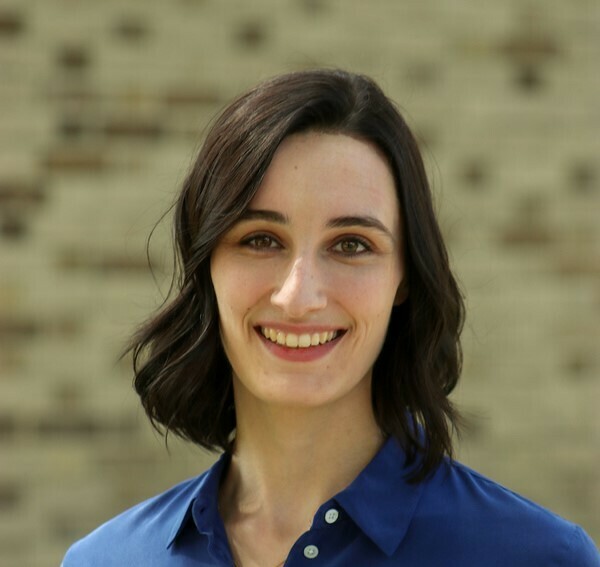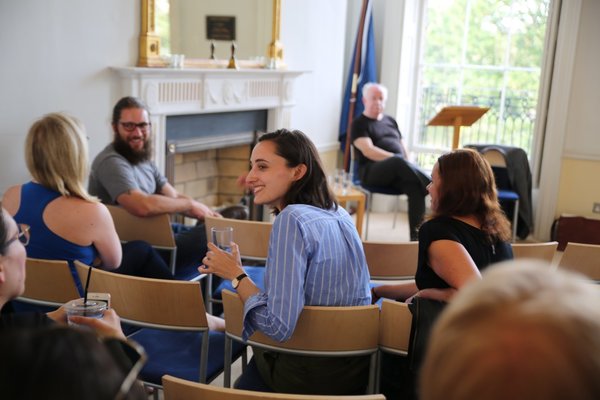
In 17th century Ireland, how did the material and financial support of the Church relate to and intersect with the ideological conflicts of the Reformation?
It is a big question—and one that is the focus of History graduate student and Irish Studies minor Alexa McCall.
Alexa’s analysis is rooted in the Church's status as a large landowner in Ireland and how that status shaped the processes of religious change and colonial plantation during some of the most radically transformative decades in Irish history—an era that began with the Wars of the Three Kingdoms (1639-1653) and ended with the Glorious Revolution (1688-89).
“By combining the history of ideas and history of religion with imperial history and economic history,” she explains, “I’m working to demonstrate the relationship between the intellectual and spiritual on the one hand, and the material on the other."
Alexa came to Notre Dame after earning her undergraduate degree from Princeton, where she wrote her senior thesis on the Rebellion of 1641.

As a doctoral student at Notre Dame, Alexa first completed two years of graduate-level courses, as well as courses in the Irish language. She has undertaken extensive research in several archives—in Ireland, at the National Library of Ireland, the King's Inns Library, Trinity College Dublin, Marsh’s Library, and the National Archives—and, in England, at the British Library in London. As an Irish Studies minor, she was funded to attend the Institute’s graduate summer IRISH Seminar in Rome (2017) and in Dublin and the Kylemore Abbey Global Centre (2018). Also in connection with her Irish Studies minor, with fellow History graduate student Lauren Jean, she returned to the Kylemore Global Centre in May 2019 for a three-day workshop that brought together graduate students from Notre Dame, Oxford, Cambridge, Edinburgh, Trinity College Dublin, and the National University of Ireland Galway. In discussion with faculty members from these institutions, students presented their work in a roundtable format and so refined questions and themes for their dissertations. Alexa is now deep into writing that dissertation—one advised by Keough-Naughton Institute Faculty Fellow Rory Rapple.
She is also teaching an undergraduate class this fall called “Screening ‘the Irish Troubles’.” It examines the many ways that political conflict in Ireland from the 1916 Rebellion and the War of Independence through the era called "The Troubles" in the north of Ireland has been represented on the screen. Among the films she is screening and discussing with her students are Michael Collins, The Wind that Shakes the Barley, Some Mother's Son, In the Name of the Father, and Bloody Sunday.
Previously, in the Fall 2020 semester, Alexa was the teaching assistant for this course, taught then by Bríona Nic Dhiarmada, Thomas J. & Kathleen M. O'Donnell Professor of Irish Studies Emeritus. While adopting several of the films in Professor Nic Dhiarmada’s syllabus, she has made the class her own by introducing new ones—for example, Good Vibrations and Mickybo and Me, to highlight the cultural and social history of the conflict in Northern Ireland. She further prepared for teaching the class by enrolling this past summer in Professor Jim Collins’ graduate-level course, “How to Teach Film Across the Humanities.”
“While the Troubles occurred two centuries after my own historical area of focus,” Alexa notes, “in fact, my research on the roots of plantation in Ireland, and the Ulster Plantation specifically, provides the necessary context for understanding the Troubles.”
While serving as the teaching assistant for Professor Nic Dhiarmada was the best preparation for becoming the instructor of “Screening ‘the Irish Troubles’,” Alexa relates how previous experiences as a teaching assistant have been important to her as well.
“My first experience as a TA was in the Fall 2018 term with Professor Brad Gregory, Dorothy G. Griffin Collegiate Chair in European History, in the class ‘Christianity, Commerce, and Consumerism: The Last 1000 Years.’
“One of my roles in that class was to help students understand what is the bread and butter of any history class: primary sources. In that case, they included the Bible, papal encyclicals, and—most exciting for me—merchant ledgers and account books.
“These ledgers and account books are a slice of life from hundreds of years ago. They reveal how a certain class of people at a certain time in history spent their time and money.”
It is that “materiality”—and the way that it intersects with the spiritual—that interests Alexa the most.
“That class was important to me not only for the teaching experience but because it influenced my dissertation on the relation between the Church and economic realities of the time. My focus is the change people want to make in their society, and how they attempt to translate those ideas into practice. In my research, I seek to understand how, in seventeenth-century Ireland, the goals of colonial plantation and religious reformation intersected."